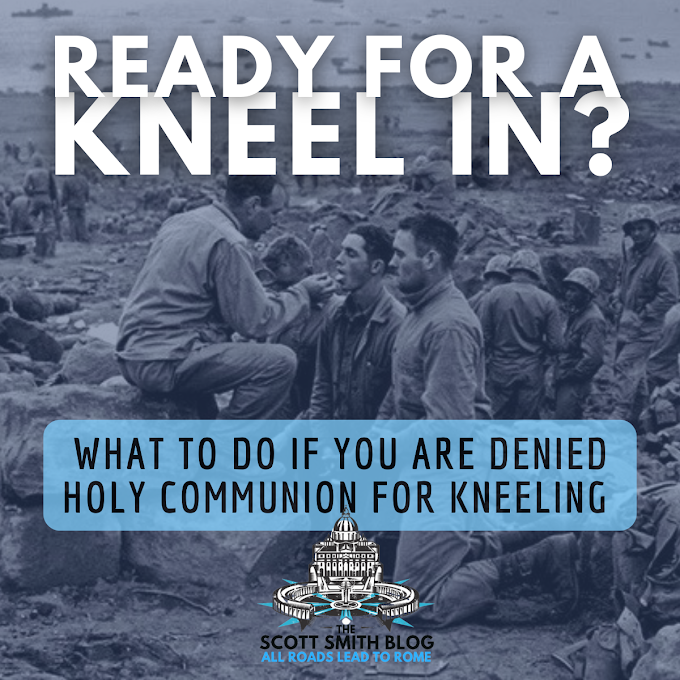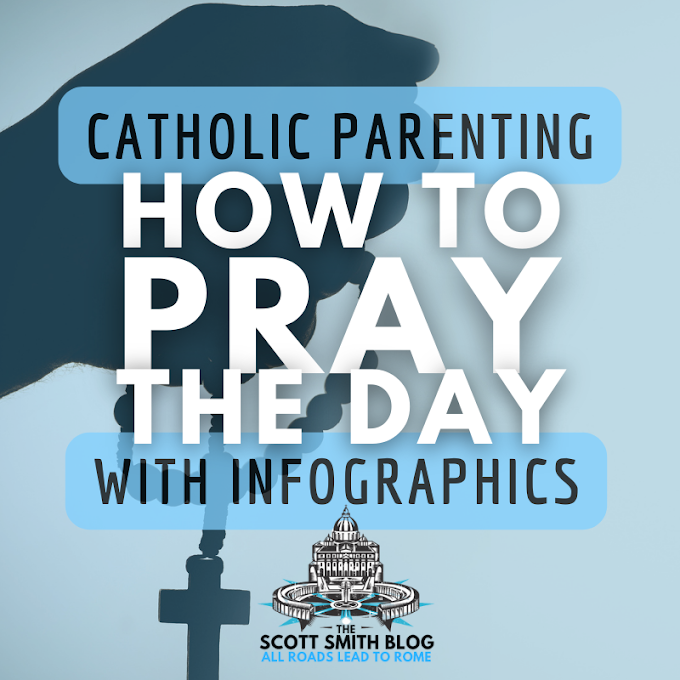Let’s talk today about Pentecostals. How we can reach out to them when their Baptism is very different from Trinitarian Baptism. Why do Pentecostals believe that it’s okay to baptize in the Name of Jesus only?
Watch the video here:
Jesus tells us clearly at Matthew 28:18-20 that we are to baptize in all three Names:
[18] And Jesus came and said to them, “All authority in heaven and on earth has been given to me. [19] Go therefore and make disciples of all nations, baptizing them in the name of the Father and of the Son and of the Holy Spirit [20] and teaching them to obey everything that I have commanded you. And remember, I am with you always, to the end of the age.”
These are the very last verses of Matthew’s Gospel. We have the words from Jesus Himself on how to baptize. Baptize in all three names. It’s straightforward. It’s simple. Where’s the confusion?
Baptize in the Name of Jesus Only?
Jesus, in His own words, instituted all the sacraments. This is why Catholics and most other Christians stay very close to the words of institution that come from Christ himself.
We have the clear statement at Matthew 28:19. Later on in the Book of Acts, we see something different. Pentecostals typically reference Acts 2:38, which says the following:
Peter said to them, “Repent and be baptized every one of you in the name of Jesus Christ so that your sins may be forgiven, and you will receive the gift of the Holy Spirit.
First, note that these are St. Peter’s words, not Jesus’. It is strange that non-Catholics would attribute greater authority to the words of the first pope over Jesus.
But still, what does it mean to baptize “in the name of Jesus Christ”?
Most Christians believe that baptizing “in the name of Jesus Christ” is just an abbreviation of baptizing “in the name of the Father and of the Son and of the Holy Spirit.” This makes since, as we are first given the longer, then comes the shorter, abbreviated form. The Apostles did not yet have the word “Trinity,” so abbreviating this as “Trinitarian Baptism” would not be possible.
So What’s the Pentecostal Logic?
Pentecostals typically argue that Jesus is giving us a “riddle” at the end of Matthew’s Gospel. Matthew is ending his Gospel with sort of a cliffhanger that will be sorted out when the Holy Spirit comes. The Holy Spirit does come at Acts 2:38, and St. Peter answers the riddle.
So what’s riddle? Jesus says “name” instead of “names” at Matthew 28:19. Jesus says baptize “them in the name of the Father and of the Son and of the Holy Spirit.” Why doesn’t Jesus say “names,” if we’re supposed to baptize in three names, not just one?
One quick answer to this is that “name” applies to all three “names”, because of the multiple use of “and.” Jesus doesn’t say baptize “them in the name of the Father, Son, and Holy Spirit.” Jesus draws it out. Jesus says baptize “them in the name of the Father and of the Son and of the Holy Spirit.”
For example, what if I said the following? Go kiss the forehead of your son and of your daughter and of your spouse. Would you assume I’m describing a three-headed person? No. You would assume three distinct person … a trinity of persons.
How Can We Definitively Resolve This Difference of Interpretation? What Did the Apostles Do?
The Church has and always will provide the definitive interpretation of Scripture. That’s was Jesus’ point in establishing the Church and then sending the Holy Spirit to guide Her.
But what if we had an ancient document that showed how the original Apostles actually baptized people?
We do!
It’s called The Didache, or The Teachings of The Twelve Apostles.
The Didache or The Teachings of The Twelve Apostles
I was recently talking to some Pentecostal friends. I asked them a question. If we could provide you with a document that showed how the earliest Apostles treated Christ’s command, would you adopt Trinitarian Baptism … and possibly the Doctrine of the Trinity, as well? Pentecostals, by the way, don’t believe in the Trinity. Anti-Trinitarianism is ultimately what’s guiding their interpretation of Jesus’ clear statement (not riddle) on Trinitarian Baptism.
If I could get you a document from the 100s, from the first centuries, demonstrating that the Apostles used the Trinitarian formula, would that change your position?
This is exactly what The Didache does. That’s dee-dah-kay. It has a Greek origin similar to the word “didactic.”
This document is really helpful because it explains what the Apostles actually did in practice. It’s like an early Roman Missal or Mass rubrics for liturgies. It gives us a great insight into those early apostolic communities.
The Didache is not part of the Biblical Canon. If it were, we might not be having this discussion. It wasn’t included in the Biblical canon, because it’s like an instructional manual. It doesn’t match the other genres of the New Testament. It’s more like the Mishna or Midrash.
The Didache is well supported historically. Many of the Church Fathers actually cite to it. Early Christian figures like Clement of Alexandria (150-215), Origen (185-253), and Eusebius (260-339) cited the work, indicating it was known and valued in the earliest centuries of Christianity.
A 4th-century papyrus fragment was discovered among the Oxyrhynchus Papyri, and a 3rd-century Latin translation also exists, confirming its early circulation.
So The Didache has very strong historical credibility and provenance. You even have a lot of skeptics like Bart Ehrman recognizing the credibility and authority of The Didache.
What Does The Didache Say About Trinitarian Baptism?
Here you go. This is Chapter 7 of The Didache, entitled “Concerning Baptism”:
And concerning baptism, baptize this way: Having first said all these things, baptize into the name of the Father, and of the Son, and of the Holy Spirit, in living water. But if you have not living water, baptize into other water; and if you can not in cold, in warm. But if you have not either, pour out water thrice upon the head into the name of Father and Son and Holy Spirit. But before the baptism let the baptizer fast, and the baptized, and whatever others can; but you shall order the baptized to fast one or two days before.
Here we have the Apostles clearing up any confusion by giving us the full Trinitarian formula.
AND giving it to us again. The Trinitarian formula is repeated twice.
Also note, there is no mention whatsoever of baptizing in the name of Jesus only. That’s not at all described. It’s like it never even occurred to the Apostles.
And again, from Matthew 28:19 to The Didache and for the next two thousand years, there is an unbroken Catholic tradition of baptizing in All Three Names, the Trinitarian Formula.
“Living Water”? There is a discussion of “living water” and what kind of water to baptize in. This is relevant to the arguments within Baptist circles about “full immersion” baptism, but not relevant to our discussion. Sufficeth to say, the top priority for baptism is having living water, like running water, like the River Jordan.
Fasting? “But before the baptism, let the baptizer fast and the baptized and whatever others can. But you shall order the baptized to fast one or two days before.” That’s interesting. Here we some evidence for an ancient tradition of fasting before major sacraments like Baptism. Catholics, for example, also fast before the Sacrament of the Eucharist.
Comments?
I hope that was helpful to you. If you have any questions, please add them to the comments. Especially if there’s any Pentecostals listening, please help us to better understand your position. Let us know so we can have a full discussion.
Valid Baptism
It is important to note that if you want to come into the Catholic Church and you’ve only been baptized in the Name of Jesus, you will need to receive a valid Trinitarian Baptism. This is not “re-baptizing” — you can only be baptized once and forever.
It’s extremely important to help people understand the correct form for baptism, which is not just the Catholic Church, but all the Christian churches honor this. Baptism is the most important step in the Christian journey. It is our supreme protection against evil. It forgives Original Sin.
Please, let’s talk to our brethren, our Pentecostal brethren, our brothers and sisters in Christ, about this because we want them to have that beauty of the sacrament and that protection from evil. So please share this with a Pentecostal friend. Let’s keep the conversation going and I appreciate your time reading this.
May God bless us in the Name of the Father, and of the Son, and of the Holy Spirit!











4 Comments